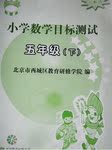题目内容
For a year and half, kids sent hurtful messages like “You are ugly.” or “Why are you still alive?” to Rebecca Sedwick. In 2013, Rebecca, then 12, couldn’t stand it anymore. She took her own life near her home in Florida. Soon afterward, Trisha Prabhu read about the story. “I was surprised and heart-broken,” said Trisha, now 15, who is from Naperville, Illinois, “I know that I had to do something to stop this from ever happening again.”
Trisha did some research. Studies show that one fourth to half of all teens in the US have been cyberbullied (网络欺凌). Experts say that if you are ever bullied online, you should tell a trusted adult. Tell the cyberbully to stop, and prevent him or her from contacting you again. Print and save messages to share with the police. This is good advice, agrees Trisha. But these methods all take place after the bullying has already happened. Trisha had a different idea. Why not teach cyberbullies to stop before they post these messages?
Trisha’s research won awards, including a prize in the Google Science Fair. Then, Tresah built the ReThink app (应用软件). It is programmed to recognize words or phrases that could be hurtful. When that happens, different warning messages come out. “Don’t say things that you may regret later!” says one message. Others ask, “Are you sure you want to say this?” and “Are these words really yours?”
Now Trisha is working on a version(版本) of ReThink for computers. “I am a big dreamer,” she says. “I want to stop cyberbullying before the hurt is done.”
1.What do we know about Rebecca Sedwick?
A. She was one of Trisha's best friends.
B. She sent hurtful messages to others.
C. She ended her life at the age of 12.
D. She went to Florida to study further.
2.What is Trisha’s suggestion for stopping cyberbullying?
A. Stop talking with the cyberbully.
B. Stop the messages before they are sent.
C. Turn to your parents or close friends
D. Show the messages to the police at once.
3.What is the third paragraph mainly about?
A. People's attitudes to the ReThink app.
B. Trisha's research on cyberbullying.
C. How the ReThink app works.
D. The Google Science Fair.
4.Which of the following can best describe Trisha?
A. Honest and careful. B. Helpful and clever.
C. Proud and impolite. D. Strange and impatient.
 天天向上一本好卷系列答案
天天向上一本好卷系列答案 小学生10分钟应用题系列答案
小学生10分钟应用题系列答案 目标测试系列答案
目标测试系列答案

 a________ mayor of the state.
a________ mayor of the state.